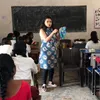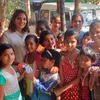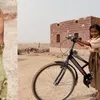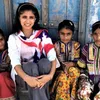These social organisations are furthering the cause of women and girl child empowerment in India
From providing girls in Thar desert an opportunity to attend school to empowering grassroots women leaders in Maharashtra, these social organisations are working on a plethora of women-centred issues.
Several recent studies have shown that the effects of the pandemic are harsher on women and girls. A UN Women study states that the COVID-19 pandemic will disproportionately affect women and push 47 million more women and girls into extreme poverty by 2021.
Pandemic or not, women and girls have always been at a disadvantage due to a multitude of issues like patriarchal mindsets, female infanticide and foeticide, lack of financial empowerment and employment opportunities, taboos and misconceptions about periods, lack of sanitation facilities, digital literacy and many more.
Several civil society organisations have often taken the onus to help empower women in a number of areas. Here are a few who are “being the change they wish to see in this world”.
Anahat for Change
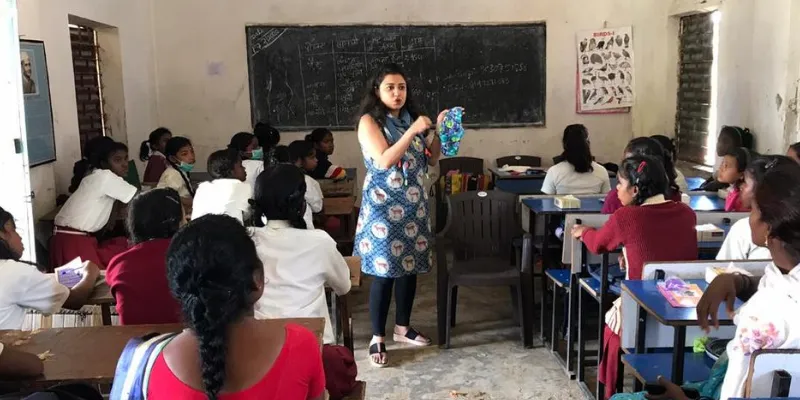
Purvi Tanwani, co-founder of Anahat for Change at a workshop
Founded by Purvi Tanwani, Anahat for Change is a Kolkata-based NGO working to empower women through self-help groups and addressing pressing issues such as menstrual hygiene and toilet facilities in government schools, gender-based violence, and more.
The NGOs campaign, “Bleed & Learn Freely” aims to ensure proper Menstrual Hygiene Management (MHM) facilities in schools. Through surveys with girls in public schools in West Bengal, Purvi realised that lack of proper facilities and sanitation in toilets were some of the main reasons that led to absenteeism amongst menstruating girls.
“A girl has to spend an average of seven hours a day inside the school premises, making a total of 32 hours a week. She is entitled to safely manage her menstruation in a clean environment,” said Purvi in an earlier interaction with HerStory.
It has also reached out to 70 government schools in West Bengal with its Happy Period Programme which aims to question socio-cultural status quo, disseminate proper information about menstrual health and hygiene, menstrual product and busting myths and taboos.
The Collective Impact Partnership
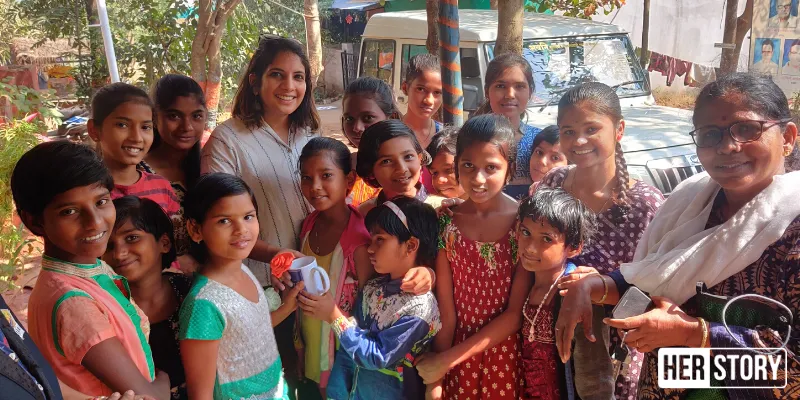
Collective Impact Partnership's Nikita Wadhwa on ground working with women and girls.
This collective effort spearheaded by five global organisations empowers women leaders at the grassroots level. An effort led by Rise Up, How Women Lead, the Public Health Institute, Global Fund for Women, and World Pulse, the Collective Impact Partnership works with a cohort of diverse leaders of women’s organisations in Maharashtra to advance economic empowerment for women.
The cohort works on a gamut of women-centred issues, such as increasing ownership of assets by women in agriculture, addressing gaps in labour rights for women workers, making university spaces accessible and safer for women through the implementation of policy for the prevention of sexual harassment (POSH), building gender budgeting skills among women for improved budget accountability, and projects that identify barriers to workforce participation for women from minority communities.
An example of grassroots level empowerment comes from Anuradha Bhonsale, a cohort member of non-profit Avani in Kolhapur leads an effort to increase recognition and dignity of women in waste-picking work.
OneProsper and Gramin Vikas Vigyan Samiti (GRAVIS)
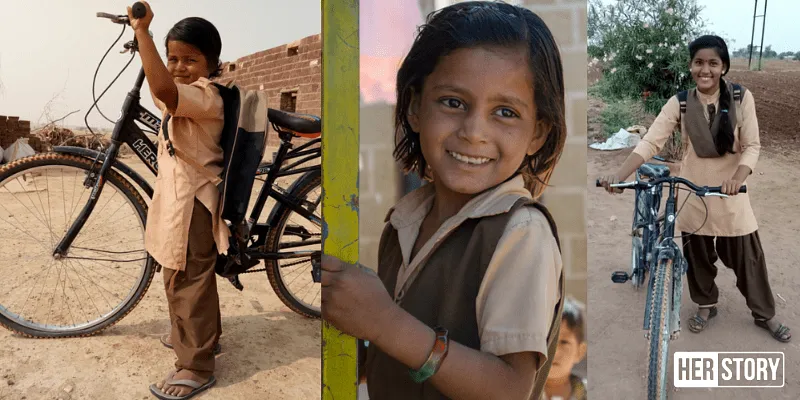
Dhapu, Durga, and Pushpa (from L to R ) are among 260 girls who have benefitted from initiatives of OneProsper and Gramin Vikas Vigyan Samiti.
Canada-based non-profit OneProsper partnered with Gramin Vikas Vigyan Samiti to work with desert communities and empower the rural communities of India.
The partnership has helped 260 girls from over 130 families living below the poverty line realise their dreams of going to school. These girls come from villages located in Thar desert in Rajasthan, where they spent most of their day helping their mothers collect water.
In order to help them stay in school, OneProsper encouraged traditional rainwater harvesting techniques by installing tankas. The organisation also provides school fees and other necessities like school bags, books, and uniforms. It also helps women set up a kitchen garden next to the tankas to grow fruits and vegetables.
Lakshyam

Raashi Anand (center), founder of Lakshyam.
Founded by social entrepreneur Raashi Anand, Lakshyam works in the area of women’s empowerment through skill development and education for children.
One of the foremost initiatives of the NGO has been in rehabilitating children from begging, rag picking, and other hazardous employment and admitting them in the nearest government schools.
Lakshyam has been working with women from slum dwellings, providing them skill training to handcraft cloth bags to earn a living. It has trained more than 8,000 women to date in making cloth bags and producing phenyl out of cow urine to sell in the market.
During the pandemic, it has helped women make and distribute cloth masks. It also set up a dedicated phone line for victims of domestic violence.
Edited by Rekha Balakrishnan



